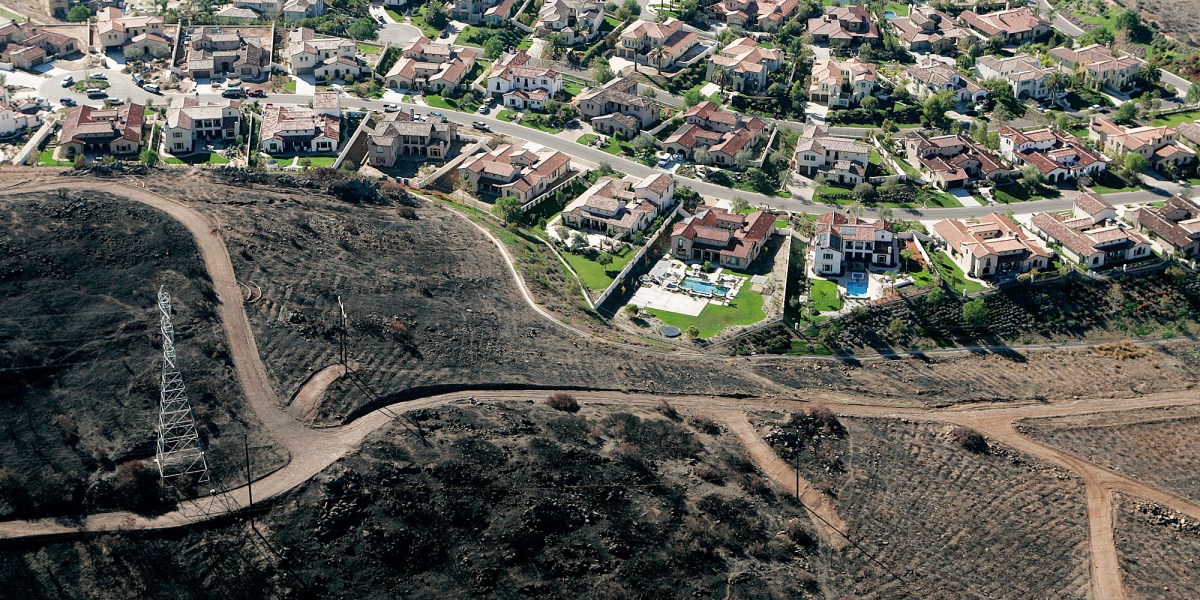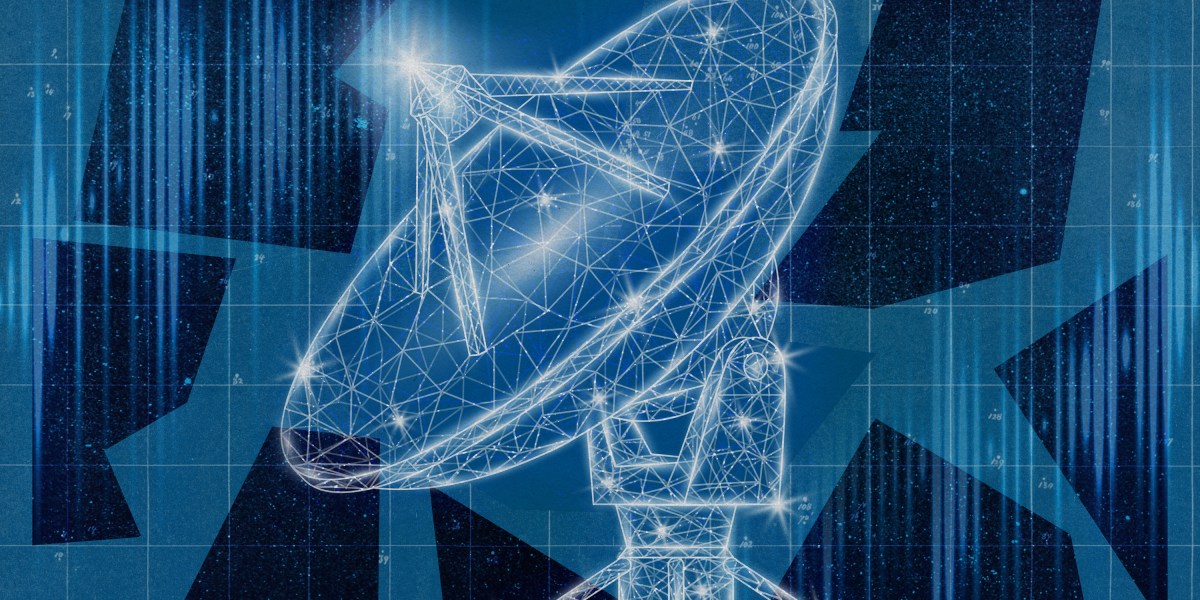The Download: fire-resistant homes, and Big Tech’s AI chokehold
This is today’s edition of The Download, our weekday newsletter that provides a daily dose of what’s going on in the world of technology.
The quest to build wildfire-resistant homes
With each devastating wildfire in the US West, officials consider new methods or regulations that might save homes or lives the next time.
In the parts of California where the hillsides meet human development, and where the state has suffered recurring seasonal fire tragedies, that search for new means of survival has especially high stakes.
Many of these methods are low cost and low tech, but no less truly innovative. In fact, the hardest part to tackle may not be materials engineering, but social change. Read the full story.
—Susie Cagle
Susie’s story is from our forthcoming Education print issue. If you’re not already a subscriber, you can sign up from just $69 a year—a special low price to mark Earth Week.
Generative AI risks concentrating Big Tech’s power. Here’s how to stop it
If regulators don’t act now, generative AI will concentrate Big Tech’s power even further. That’s the central argument of a new report from research institute AI Now. To understand why, consider that the current AI boom depends on two things: large amounts of data, and enough computing power to process it.
Right now, Big Tech has a chokehold on AI, and business is booming. But what separates this tech boom from previous ones is that we have a better understanding of all the catastrophic ways AI can go awry. And regulators everywhere are paying close attention. Read the full story.
—Melissa Heikkilä
Melissa’s story is from The Algorithm, her weekly AI newsletter. Sign up to receive it in your inbox every Monday.
The must-reads
I’ve combed the internet to find you today’s most fun/important/scary/fascinating stories about technology.
1 An AI-generated image won a major photography award
The organizers accused the creator of misleading them over the extent he used AI. (BBC)
+ An AI-generated Drake song is taking the internet by storm. (Motherboard)
+ Giant AI models are yesterday’s news, according to Sam Altman. (Wired $)
+ Elon Musk is threatening to release a new AI he calls ‘TruthGPT.’ (Quartz)
2 SpaceX will try to launch its Starship rocket again on Thursday
A broken valve forced it to postpone its planned departure yesterday. (Reuters)+ Some SpaceX launches have been more successful than others. (NYT $)
+ If it’s successful, the flight could usher in a new age of space travel. (Economist $)
3 ICE employees abused their access to private records
Workers reportedly accessed sensitive data to carry out personal vendettas. (Wired $)
4 What will it take to build a successful Twitter alternative?
A Jack Dorsey-backed project wants to find out. (The Verge)
+ Mastodon’s user numbers are dropping. (The Guardian)
+ But fewer people want to join Twitter, too. (Insider $)
5 The arts industry’s performance live streams are dwindling
That’s particularly bad news for fans who can’t travel. (NYT $)
6 China is throwing its weight behind its EVs
It’s bad news for Tesla. (WSJ $)
+ VW is struggling to compete with China’s native manufacturers, too. (Bloomberg $)
+ Which country is at the bottom of the global EV race? (Economist $)
+ How did China come to dominate the world of electric cars? (MIT Technology Review)
7 Tidal power isn’t a big part of the world’s energy mix
But its potential is undoubtedly growing. (Undark)
8 What the future of human fertility looks like
From artificial wombs to three-parent families. (New Yorker $)
+ The idea of using a “three-parent baby” technique for infertility just got a boost. (MIT Technology Review)
9 Why we can’t look away from TikTok’s revolting food
It’s rage-baiting content at its finest. (The Guardian)
+ The porcelain challenge didn’t need to be real to get views. (MIT Technology Review)
10 Influencers are laying bare the inner workings of the internet
But their audiences don’t seem to care. (The Atlantic $)
Quote of the day
“Not a day goes by where you don’t use an item that wouldn’t exist if it weren’t for the Japanese part in it.”
—Ulrike Schaede, professor of Japanese Business at the University of California, explains how important Japan’s manufacturing industry is to Bloomberg.
The big story
Why we can no longer afford to ignore the case for climate adaptation
August 2022
Back in the 1990s, anyone suggesting that we’d need to adapt to climate change while also cutting emissions was met with suspicion. Most climate change researchers felt adaptation studies would distract from the vital work of keeping pollution out of the atmosphere to begin with.
Despite this hostile environment, a handful of experts were already sowing the seeds for a new field of research called “climate change adaptation”: study and policy on how the world could prepare for and adapt to the new disasters and dangers brought forth on a warming planet. Today, their research is more important than ever. Read the full story.
—Madeline Ostrander
We can still have nice things
A place for comfort, fun and distraction in these weird times. (Got any ideas? Drop me a line or tweet ’em at me.)
+ Kabosu, the shiba inu dog best known as the face of the doge meme, recently turned 17 years old!
+ I love how Tom and Jerry is still keeping it fresh after all these years.
+ This kinetic sculpture in Batumi, Georgia, is pretty amazing.
+ If only all cats could be as relaxed as Hokule’a the surfing cat.
+ I like the sound of the world’s most expensive mango.




